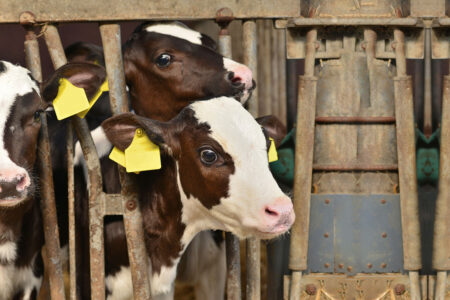When doing the right thing is... annoying
Michael Jackson already sang it: If you want to make the world a better place, take a look at yourself and then make a change. But do be warned: people don’t always find morally motivated ‘do-gooders’ inspiring, but rather annoying!
Imagine reading a Facebook post written by Tim. He has decided to become a vegetarian, because he ‘cares about acting morally as a consumer and he would like everyone to move towards a sustainable future’. In this post, he also asks his social contacts to consider eating less meat. How would you feel about Tim? Would you like him? Or would you like him better if he told you he had stopped eating meat because, as a student, he finds it too expensive?
Chances are that Tim, at least in the first scenario, elicits a feeling of irritation (except if you are a vegetarian yourself, like me). Research suggests that we sometimes find people that do ‘the right thing’ annoying rather than inspiring. Sometimes this feeling even discourages us from making better and more sustainable choices ourselves. And this is a shame, because that’s quite the opposite of what Tim was trying to accomplish.
The do-gooder derogation
But how come we find these people so annoying? Shouldn’t we be cheering for them and the brave choices they make? We probably would, if these people didn’t pose a threat to our self-concept. When we observe someone making a moral decision that we have not chosen to make (becoming a vegetarian, for example), we are confronted with our shortcomings and we feel accused of being morally inferior. This threatens the way we want to see ourselves: as a good person.
To defuse this threat to our self-concept and restore our positive self-concept, we start to defend ourselves. We say, for example, that vegetarians are annoying, pretentious, or not making any difference at all. By believing this, we no longer have to see ourselves as a bad person. This is known as the do-gooder derogation.
What if you’re the good guy?
But what about the morally motivated people themselves? Coming across as morally superior can cause social friction, making you less liked by other people. And indeed, do-gooders seem to be perfectly aware of the effect they sometimes have on other people. Therefore, they sometimes play down their moral decisions to make sure they do not come across as superior, especially in situations in which other people are more self-involved (“I just don’t eat meat because I don’t like the taste of it”).
In fact, sometimes do-gooders even sabotage themselves! Vegetarians, for example, may point out that they still wear leather boots, or that it was too hard for them to abandon cheese. The aim here is to let other people know that they have their flaws too, and are definitely not superior.
Positive influence
Does this mean that doing good can never have a good influence on other people? Luckily not. It is the knowledge that we could have chosen differently that makes us feel uncomfortable. So if the moral behavior is about a choice or a situation we have never come across, it does not threaten us. In such cases, we are even more inspired by people who do good for moral reasons instead of from self-interest.
For example: If Tim said he’d discovered a new packaging-free store you’d never heard of, you might be inspired to follow his example. But if you already know the store and never go there because you hate bringing your own containers, Tim becomes a threat again.
Being a vegetarian (who also writes blogs about sustainable living), I find it a little depressing that it is so hard to inspire people. However, I always try emphasize that I have a lot of flaws, and that generally leads to positive reactions. I make an exception when I’m dealing with people I don’t like, of course. I’d hate to miss out on that golden opportunity to annoy them while simultaneously saving the earth!
This blog was inspired by a lecture by Jan Willem Bolderdijk at Leiden University on October 22.





